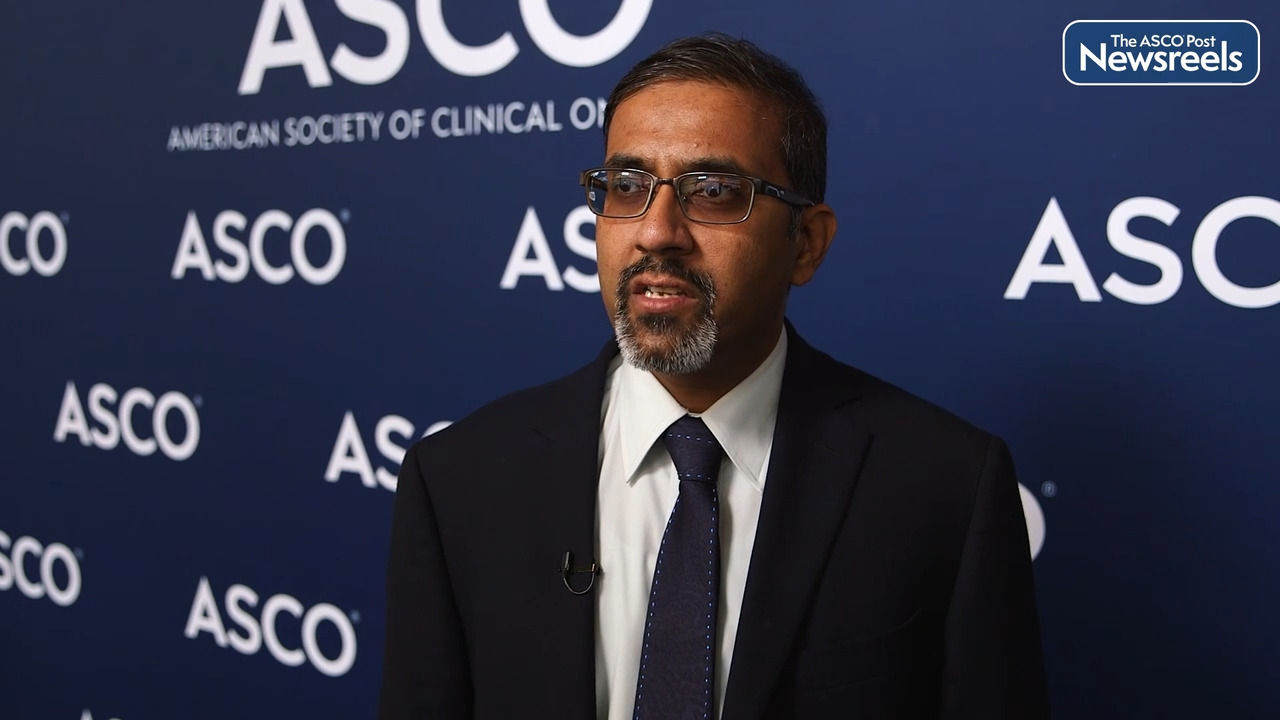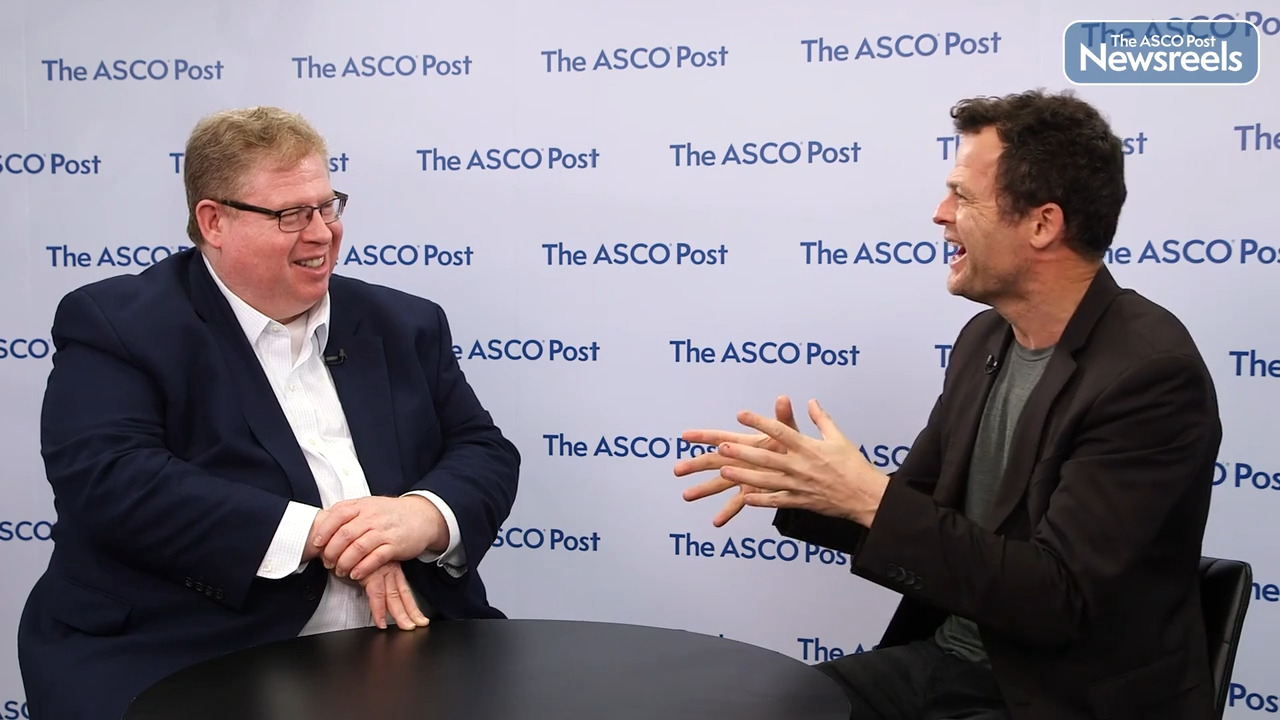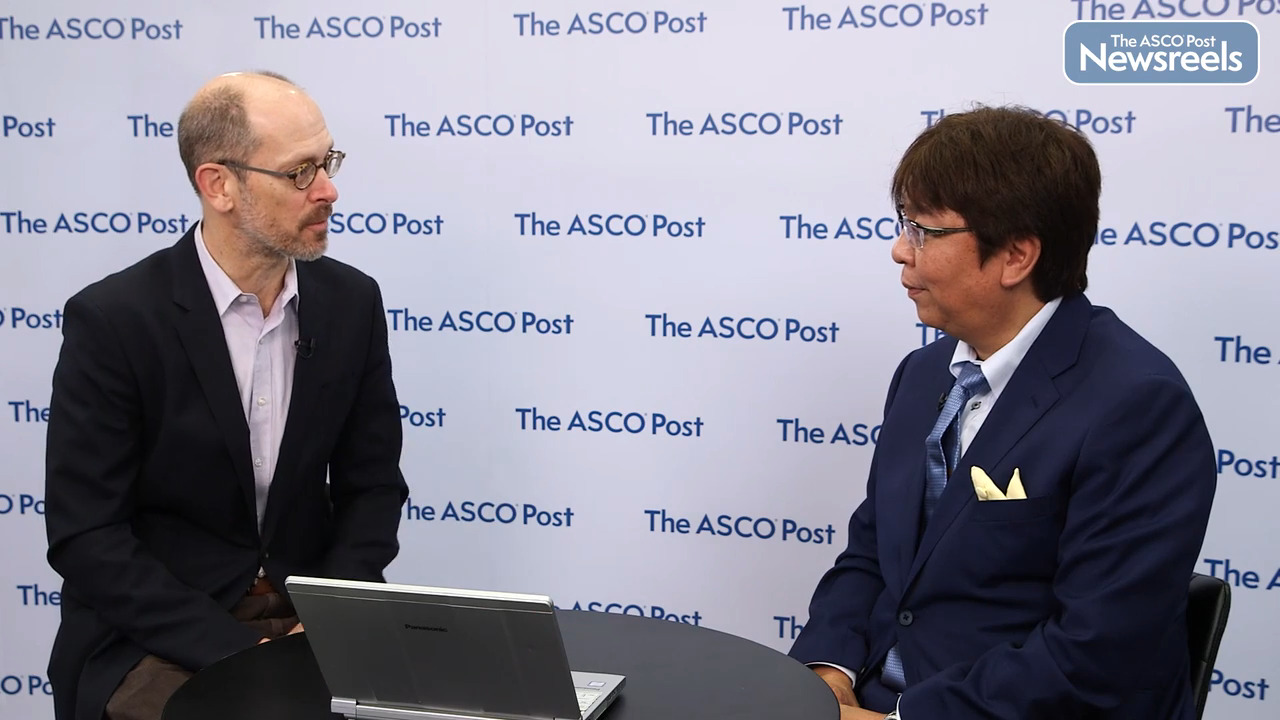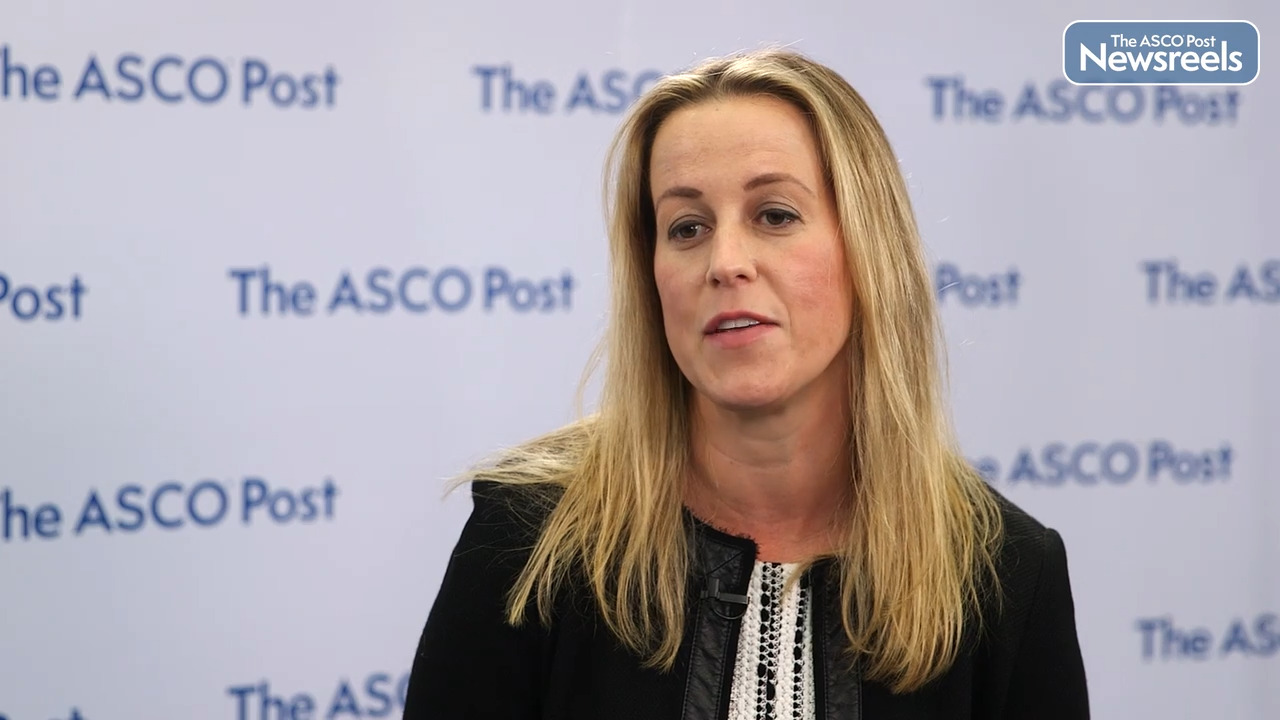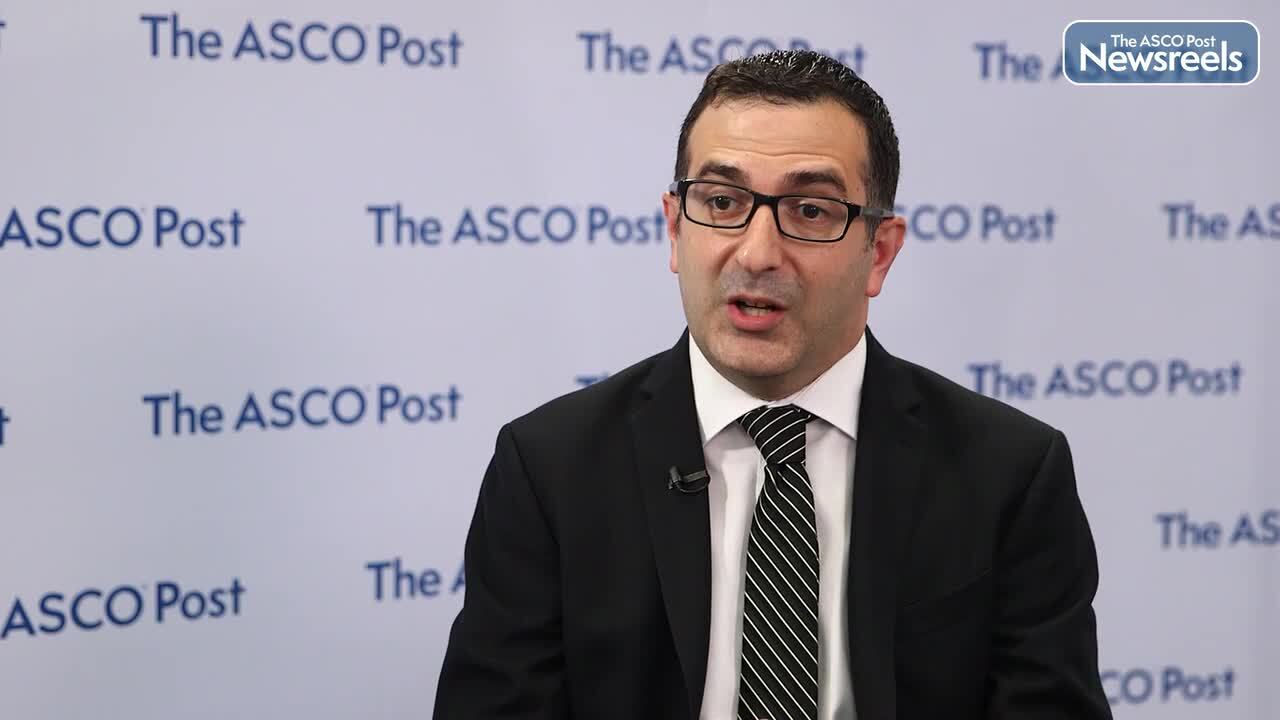Maxwell Oluwole Akanbi, MD, PhD, on Lung Cancer: The Effect of Screening on the Incidence of Advanced Disease
2022 ASCO Annual Meeting
Maxwell Oluwole Akanbi, MD, PhD, of McLaren Regional Medical Center, discusses the study he conducted, using the SEER database, to evaluate the impact of lung cancer screening recommendations on low-dose CT scanning. The data suggest that guidelines from the U.S. Preventive Services Task Force led to a more rapid decline in the incidence of advanced disease in the United States, especially among minority populations (Abstract 10506).
Transcript
Disclaimer: This video transcript has not been proofread or edited and may contain errors.
Lung cancer is the leading cause of cancer mortality in the US, and this is because most patients with lung cancer are diagnosed at advanced stages of the disease. Trying to make patients present earlier has been an elusive challenge, until in 2011, when results of the National Lung Cancer Trial were reported. This study showed that low-dose CT scan could improve survival in patients with lung cancer by making earlier diagnosis. Although this has been shown in clinical trials, the government has ruled out lung cancer screening in the general population without also actually knowing whether it is efficacious in the general population.
Our study was to evaluate the effectiveness of lung cancer screening in the US general population. You will use the SEER database, we analyzed data of patient diagnosed with lung cancer from 2004 to 2018. Our goal was to see if the incidence of advanced lung cancer reduced over this time. Our results showed that incidence of advanced lung cancer actually decreased in the US population following the rollout of lung cancer screening. This was particularly significant in minority populations. This is encouraging because there have been concerns that lung cancer screening may not be very effective in this population because they had limited access to screening facilities.
So, while this is encouraging, the work is not yet done. Our end goal is to make sure there's reduction in lung cancer mortality. There are still barriers between screening and mortality, so the next stage of our study will be to see whether this reduction in incidence of advanced lung cancer actually translate to reduction in lung cancer mortality.
Related Videos
The ASCO Post Staff
Apar Kishor Ganti, MD, of the University of Nebraska Medical Center, discusses results from the CALGB 30610 study, which showed a similar clinical benefit for once- and twice-daily radiotherapy administered to patients with limited-stage small cell lung cancer. While both regimens were well tolerated, patients who received radiotherapy once daily had better quality-of-life scores at week 3 and slightly worse scores at week 12. Patients believed the once-daily regimen was more convenient (Abstract 8504).
The ASCO Post Staff
Jonathan E. Rosenberg, MD, of Memorial Sloan Kettering Cancer Center, and Thomas Powles, MD, PhD, of Barts Health NHS Trust, Queen Mary University of London, discuss phase III findings from the KEYNOTE-426 trial, which appear to support the long-term benefit of pembrolizumab plus axitinib for first-line treatment of patients with advanced clear cell renal cell carcinoma (Abstract 4513).
The ASCO Post Staff
Michael J. Overman, MD, of The University of Texas MD Anderson Cancer Center, and Takayuki Yoshino, PhD, MD, of the National Cancer Center Hospital East, Japan, discuss results from the PARADIGM trial, the first prospective study to test the superiority of panitumumab vs bevacizumab in combination with standard doublet first-line chemotherapy for patients with RAS wild-type and left-sided metastatic colorectal cancer. The study showed that panitumumab improved overall survival in combination with mFOLFOX6, which may establish a standard first-line combination regimen for this population (Abstract LBA1).
The ASCO Post Staff
Erika Hamilton, MD, of Sarah Cannon Research Institute at Tennessee Oncology, discusses phase III data from the DESTINY-Breast03 study, which reinforced the consistent safety profile of fam-trastuzumab deruxtecan-nxki (T-DXd) vs ado-trastuzumab emtansine (T-DM1) in patients with HER2-positive unresectable and/or metastatic breast cancer. The findings also support T-DXd’s risk benefit over that of T-DM1 (Abstract 1000).
The ASCO Post Staff
Rami Manochakian, MD, of Mayo Clinic Florida, discusses the phase II findings of the NADIM II trial, which confirmed that, in terms of pathologic complete response as well as the feasibility of surgery, combining nivolumab and chemotherapy was superior to chemotherapy alone as a neoadjuvant treatment for locally advanced, resectable stage IIIA non–small cell lung cancer (Abstract 8501).
